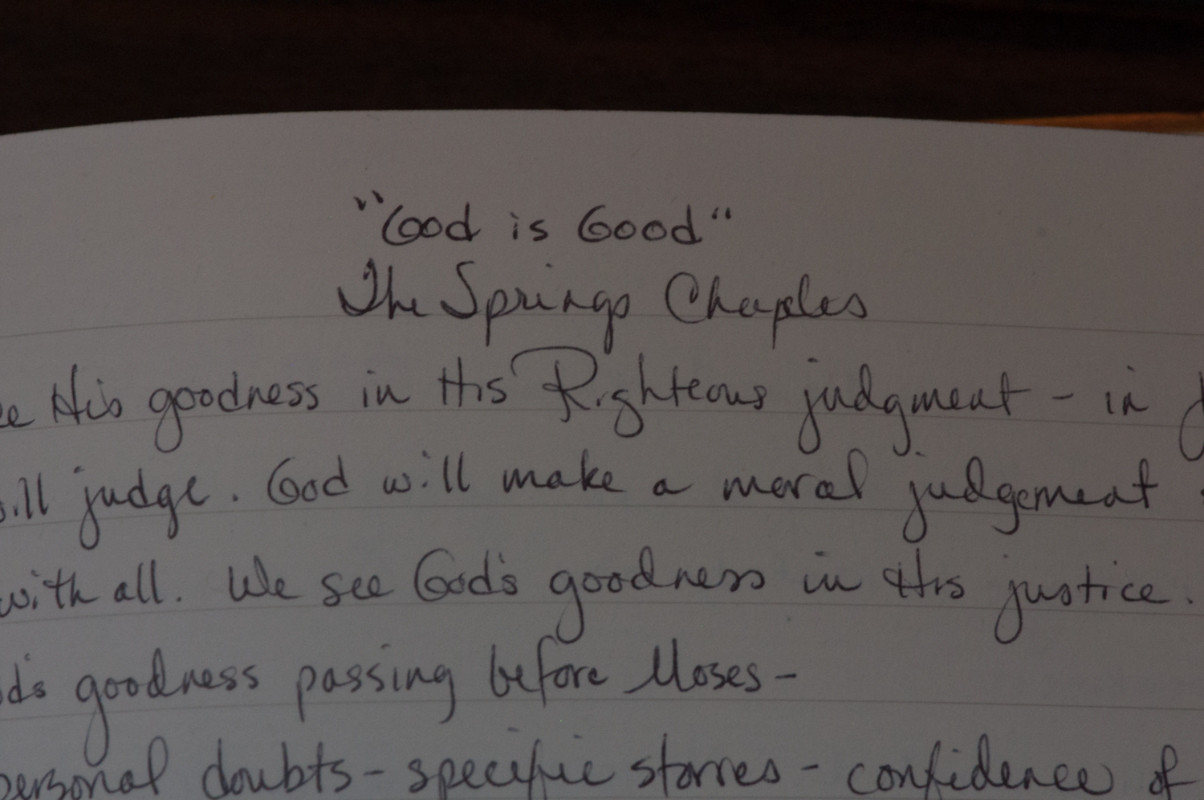What are the Benefits of Journaling?
Why should we take the time to write in a spiritual journal? Because there are tremendous benefits. Journaling helps us to focus our thoughts and gain understanding when life is puzzling. We find insight and can think the previously unthinkable thought. Keeping a journal is the best way to live an examined life—keeping watch over our hearts.
Think about your heroes—what made them successful?
I’ll bet they kept a journal.
What is it about journaling that helps us accomplish our dreams?
Focus
Journal writing keeps us focused on what God has called us to do. Writing helps us stay engaged, ask hard questions, and hold on to our values when we go through adversity. Politicians, scientists, missionaries, and biblical authors, all found private writing kept them focused on their goals. "I urge people to make a list, or at least notes, because writing fosters focus and specificity." (Margaret Guenther in her book, Holy Listening-The Art of Spiritual Direction)
understanding
Research has shown that writing is more powerful than anything else in truly cementing new understanding deep within our own thinking. Across the curriculum, even in P.E. classes, we write. As a graduate student I kept notes and reflections as I read extensively, and often I surprised myself by how closely the words I wrote in my thesis were to the words of other authors. Without knowing it, I had integrated their thoughts and made them my own. Writing is a powerful tool for learning.
reflection
The pace of life for previous generations was much slower. As Jesus and his disciples walked from place to place there was time for conversation and personal reflection. In the 1700-1900s people spent hours writing letters, reflecting on their lives, expressing their hearts. But not so today. Never before in history has there been a society that was so rich in things and so poor in time. When do you keep watch over your heart?
When do you pay attention to the important things in your life? When do you take an honest hard look at what's really motivating you? When do you ask yourself if all of your activity is leading you to where you want to go? Typically, we don't have a chance in the normal course of our day to pause and reflect and get to know ourselves. Journal keeping gives us this opportunity.
Thinking unthinkable thoughts
Writers are immersed in their own inner "chaos"—the complexities and apparent contradictions of their inner thoughts. Journalkeepers have the freedom to think the previously unthinkable. It is inherently messy. Mina Shaugnessy writes that the mess is a sign that productive thinking is taking place. Often our journals are a wonderful mess of new thinking that goes beyond "stock response." Private writing can help us have new thoughts and gives us an opportunity to further develop and expand our thinking.
insight
Journals can be a wonderful source of insight. We can learn from our experiences as we write privately about them. The Bible has several examples of God telling people to keep a spiritual journal. It says, "At the Lord's direction, Moses kept a written record of their progress." Moses obeyed God's command to record Israel's spiritual journey.
Sometimes the greatest lessons come out of pain. Don't just write down the pleasant things. Record your doubts, fears, and struggles with God. As you re-read your journal, if you find that there is wisdom there that you want to share, do take the time to craft a blog post, or write a book, and make it available for others.
an examined life
Journaling gives us opportunity to consider how we are living. Are we living according to our own values or just doing what everyone else is doing? As Christians we are taught that we ought to examine ourselves regularly so that we can be discerning regarding ourselves, being aware of the actual state of our own hearts and readily acknowledging our stuff ( I Cor. 11:28ff). Socrates believed that the unexamined life is not worth living. [Quoted in Plato's Apology (38a5-6)]. Our journals are an excellent place to examine ourselves. And as we see our shortcomings and failures to be who we want to be, the door opens for humility and grace.
“For who knows a person’s thoughts except their own spirit within them? ”





